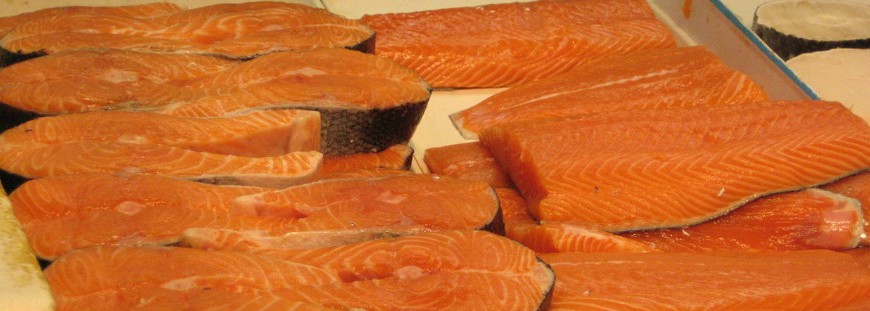The U.S. Food and Drug Administration after just about twenty years of wrestling with the issue, has announced the approval of the first genetically engineered (GE) animal product fit for human consumption.
It’s an iteration of farmed Atlantic salmon-esque fish capable of growing in two years as long as its non-GE counterparts will grow in three. It uses 25% less food to get to market size. For American consumers, the product’s carbon footprint will be smaller than its counterparts raised in fish farms in Norway and Chile, because of reduced transit times from approved farms in Panama and Canada. Sounds kind of like the answer, right?
GE Fish is Not the Answer
FDA’s purview is to review the suitability for human beings to ingest drugs and food. And FDA determined that, as a “drug application,” GE salmon are safe for people to consume and digest. But while FDA has declared the GE fish safe, it has no purview over determining whether it’s good for people.
And that’s fine. The decision to ingest a GE animal should be left to the (hopefully) informed consumer. With all the information in hand, shoppers should have the freedom to choose whether this organism is right for their family and for their conscience. But even with all the info in their back pockets, that choice is going to be hard to make.
Do You Know What You’re Eating?
Despite requiring country-of-origin labeling, and despite requirements to label non-GE salmon as farmed or wild-caught, there will be no requirement to label GE salmon as such.
So consumers can choose to support domestic fisheries and their communities, and the informed consumer may even conclude that purchasing wild-caught salmon would necessarily avoid the GE counterpart. But when it comes to purchasing farmed fish, there is no way for even the informed consumer to decide between a traditionally raised product and a product with potentially unknown implications on the health of the environment in which it’s been introduced.
Not to mention that two-thirds of salmon is mislabeled and now might be foreign, farmed and GE instead of the wild California King you just paid for. All the more reason for FDA to require labeling of GE foods, especially salmon.
And Here’s What You Need to Know
Frankenfish, or GE “salmon,” could wipe out wild, naturally occurring salmon stocks. Despite statements that the AquAdvantage fish cannot reproduce, environmental groups and the FDA have pointed out that up to 5% of the individuals produced in the lab may not be sterile. Thus, the threat of a Trojan salmon, which sneaks into naturally producing salmon streams and corrupts the local genome with bigger, stronger GE genes, is very real, and could lead to major crashes of wild populations. And as wild salmon go, so goes the commercial salmon fleet.
While we appreciate that these GE fish will be grown in onshore, closed system fish farms – a form of finfish aquaculture much more environmentally responsible than open-ocean net pens – there is no way to account for mistakes or human intervention that could result in the release of frankenfish into the wild. For natural salmon runs already on the brink of extinction, GE fish are cooking up a disaster.
Some Final Thoughts
On perhaps a deeper note, we have to question the wisdom in thinking humans can out-engineer Mother Nature. Unique salmon runs evolved over millennia to accommodate themselves to the exact natal stream where their genetics will propagate in harmony with the surrounding environment. That process resulted in an absolute windfall of salmon that could support entire populations. But man’s quest to conquer nature, expressed in overfishing, redirection of rivers, and the imposition of humanity in areas without their own natural resource supplies, has stressed those natural salmon runs to the point where we decided to re-engineer them to better accommodate our impact on the earth.
That seems unnecessary, redundant, dangerous and unprecedented. Wouldn’t it be smarter to put our human intelligence into reinforcing the natural systems that were so immensely productive before we interfered with them?
Salmon photo courtesy of Wikipedia


